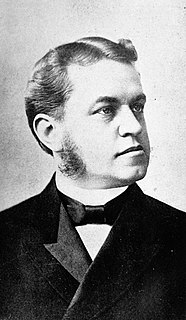A Quote by Hannah Arendt
According to bourgeois standards, those who are completely unlucky and unsuccessful are automatically barred from competition, which is the life of society. Good fortune is identified with honor, and bad luck with shame.
Related Quotes
This perhaps was what lay at the root of the hysteria surrounding what came to be known as the Gold Rush: Men desiring a feeling of fortune; the unlucky masses hoping to skin or borrow the luck of others, or the luck of a destination. A seductive notion, and one I thought to be wary of. To me, luck was something you either earned or invented through strength of character. You had to come by it honestly; you could not trick or bluff your way into it.
When a church reaches up beyond its group and tries to enforce its standards upon a society that doesn't accept these standards, and perhaps for good reason, perhaps for bad reason, but anyway this is the problem we face in pluralistic society, that not necessarily every standard that every church tries to enforce upon the society is from the society's standpoint a good standard.
Things worthwhile generally don’t just happen. Luck is a fact, but should not be a factor. Good luck is what is left over after intelligence and effort have combined at their best. Negligence or indifference are usually reviewed from an unlucky seat. The law of cause and effect and causality both work the same with inexorable exactitudes. Luck is the residue of design.







































